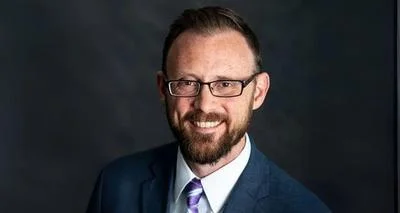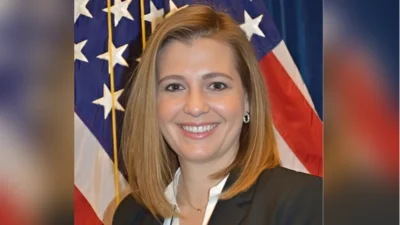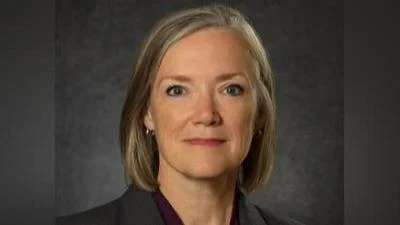The Congressional Record is a unique source of public documentation. It started in 1873, documenting nearly all the major and minor policies being discussed and debated.
“EXCELLENCE IN MENTAL HEALTH AND ADDICTION TREATMENT ACT” mentioning Roy Blunt was published in the Senate section on pages S4614-S4615 on June 17.
Of the 100 senators in 117th Congress, 24 percent were women, and 76 percent were men, according to the Biographical Directory of the United States Congress.
Senators' salaries are historically higher than the median US income.
The publication is reproduced in full below:
EXCELLENCE IN MENTAL HEALTH AND ADDICTION TREATMENT ACT
Mr. BLUNT. Madam President, let me say, our times got changed today a little bit, and I was trying to finish another thing to get over here and hear in person what Senator Stabenow had to say. She has been an incredible leader in this effort, a great partner.
As she mentioned, we came to the floor the last day of October 2013, which was the 50th anniversary of President Kennedy's signing the Community Mental Health Act. Well-intended, but an awful lot of it just didn't get done. Facilities were closed that maybe were well overdue to be closed, but the opportunities weren't put in place to replace them as that act had hoped they would be.
I think we have been in the process of making big strides toward doing that. That was 2013. In 2014, we were able to get the first pilot project for Excellence in Mental Health put into place, an eight-State pilot project, where we were looking not only at the impact on those individuals and families who needed to have their behavioral health issue treated like all other health issues but also, frankly, looking to see what impact it had on all their other health issues when your behavioral health issue is being treated as it should be.
One of the great costs in healthcare is missed appointments. You have got to believe that almost 20 percent of the population that has a behavioral health issue is more likely to miss an appointment than everybody else, and, of course, that costs the whole system, but it particularly costs them.
If you are going to the doctor when you need to, taking the medicine you are supposed to take for any kind of health issue, eating better, sleeping better, feeling better about yourself, your health issues are dealt with in a different way.
Nearly one in five Americans, according to the NIH, has a behavioral health problem, but only a fraction of those Americans get the care they need. The NIH says they have a diagnosable--almost one out of five Americans has a diagnosable and almost always treatable behavioral health problem. But, certainly, one out of five Americans who have that problem don't get the care they need to deal with that problem.
The COVID pandemic added to many of those challenges, and, realistically, it would, if you think about it. If you have got a behavioral health issue, that is not normally going to be helped by isolation, by worrying about healthcare for yourself or somebody you care about, wondering whether you are going to lose your job or someone in your family is going to lose their job. None of those things are going to be helpful.
The other area that comes into play there is an addiction issue of any kind. If you don't have a behavioral health issue before you have an opioid dependency or some other addiction issue, you certainly have one after that addiction takes over.
So all of those things were exacerbated by the pandemic. The percentage of Americans with symptoms of anxiety or depression grew by more than 40 percent. Drug overdose deaths increased by 20 percent between October of 2019 and 2020. It was 30 percent. I think I may have said 20--30 percent.
That was after 3 years of having drug overdose deaths headed in a dramatically different direction, but suddenly 2020 was the highest year ever for drug overdose deaths.
So the challenges of that are great. We now have 10 States, including both Missouri and Michigan, that went through a competitive process and became part of the original Excellence in Mental Health States.
In all of those States, we have certified community behavioral health clinics that have to meet standards. They have to meet standards of who staffs that clinic; they have to be available 24 hours a day, 7 days a week, with crisis management as a possibility. They can do preventive screenings. They can determine appropriate care coordination with other providers, like emergency room departments or veterans services.
All of those things make a dramatic difference in people's lives. People getting help through the clinics often have access to primary care treatment as well. I have visited a lot of those clinics in our State. I have seen what happens with these demonstration projects. They are enabling more people to get the complete healthcare they need--and, again, including mental healthcare and addictive treatment--quicker, closer to home.
In new data from the National Council for Mental Wellbeing, 84 percent of those clinics, the CCBHCs they are calling them--84 percent of them were able to see clients within the first week. I think 100 percent of them were able to see a client who needed to be seen that day, that day. I certainly hope that is the goal. I hope nobody goes to a clinic, if professionals believe you need help right now, who doesn't get help right now.
But 84 percent of the people who show up get an appointment within the first week. That definitely was not the case 10 years ago, and it is not the case now in States that haven't become part of this program.
Ninety-five percent of those clinics are involved with law enforcement activities and nursing and criminal justice centers. In my hometown of Springfield, MO, every patrol officer who has been trained in crisis intervention has an iPad with them that they can connect anybody they are talking to with a 24/7 Burrell community health center.
And they do. I have seen that happen. I have traveled with officers who have done that. And, by the way, I am sure they didn't have me with an officer who wasn't really good, but you could see, no matter how good that officer was, the individual, when they were talking to somebody at the clinic who was a professional dealing with this all the time, you could see that conversation took on a totally different tone.
We have seen more and more efforts to try to help with substance abuse. We have been able to fund the federally qualifying clinics in new ways because of that.
So 10 States are totally in this program. Forty States, under an amendment we made a couple of years after we got started, have been able to take county units or other units that they can qualify into the Excellence in Mental Health Program.
So what we are working on now with our colleagues is an effort to, once again, make this available to the entire country. I think we have had enough proof in the last 7 years or so to show it makes a big difference.
Again, let me say, everybody has always known that this is the right thing to do, and they have always known it is the thing that even was financially smart in the long run. I think we are also showing here how, in the immediate healthcare context, it makes a financially smart investment to help somebody with their behavioral health challenges as you are working with all of their other health challenges.
Behavioral health, mental health needs to be treated like all other health. This Congress, this year, hopefully starting in this Senate, has the ability to say: OK. We are ready to open the door now to every State that wants to participate in a program that would treat mental health like all other health.
I know Senator Stabenow and I are going to be working hard together, and you are going to be helping us as we work to get this done.
Thank you for the time today. I look forward to the further debate of these issues. I think we have come a long way within the last 8 years. We can see the full opportunity here right on the horizon.
The Congressional Budget Office, every time they look at this, thinks it costs less than they thought the time before because they are seeing the overall impact in ways that we thought these pilots would prove.
So let's get this done this year. I look forward to working hard to do it and look forward to a full debate and vote on this issue on the Senate floor.
I would yield back.
The PRESIDING OFFICER. The Senator from Oklahoma.
____________________





 Alerts Sign-up
Alerts Sign-up